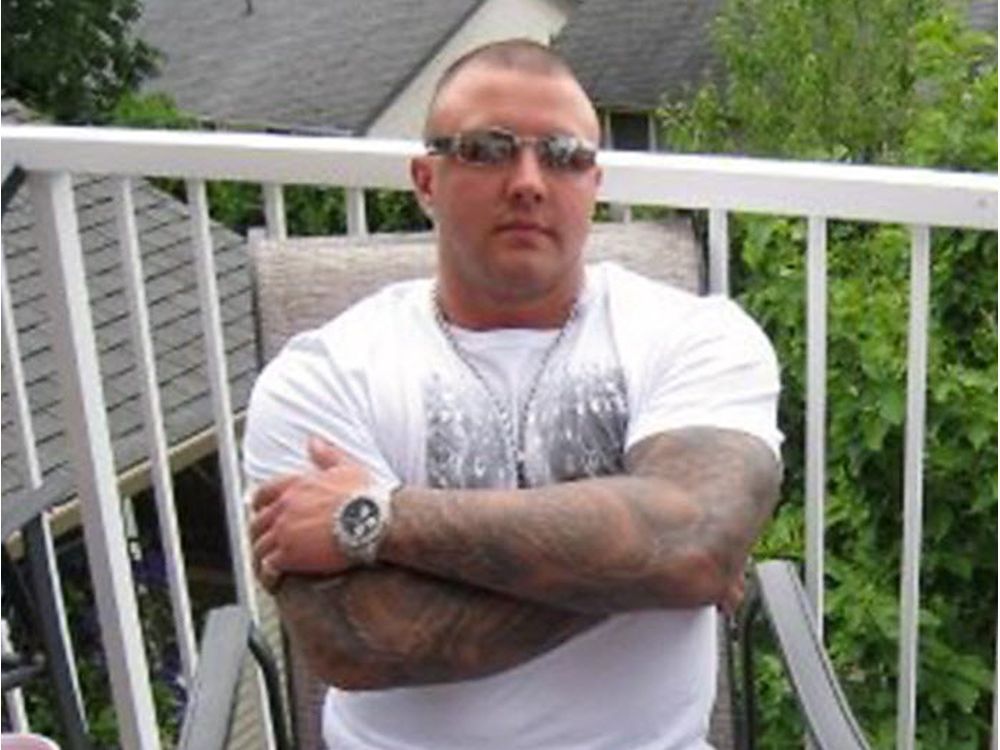REAL SCOOP: Bacon Surrey Six appeal held in closed courtroom

Credit to Author: Kim Bolan| Date: Tue, 03 Dec 2019 08:27:47 +0000
We may never know why murder and conspiracy charges against Jamie Bacon were stayed two years ago in the Surrey Six case. The Crown appeal of those stays began at the Vancouver Law Courts Monday, but Justice Mary Saunders ruled that the five-day hearing would be held in-camera.
Here’s my story:
Two years after a judge stayed a murder charge against Jamie Bacon, the Crown’s appeal got underway in a secret hearing before B.C.’s highest court on Monday.
The Vancouver Sun tried to gain access to the hearing, but Appeal Court Justice Mary Saunders said that because the underlying B.C. Supreme Court decision was filed under seal after in-camera proceedings, the related appeal also needed to be heard behind closed doors.
“The step requested is not taken lightly. The open court principle is vital to the community’s confidence in the administration of justice, and judges and counsel are steeped in its values,” Saunders said. “As I have said, counsel for the Vancouver Sun recognizes there are rare cases that demand protection of privilege and confidential information to the degree that the courtroom must be closed to allow the issues engaged to even be adjudicated.”
Bacon had been charged with conspiracy and first-degree murder in connection with the gangland Surrey Six slayings until Dec. 1, 2017, when Justice Kathleen Ker stayed the charges after a series of secret pre-trial hearings.
She said at the time that she was granting Bacon’s application for a stay, but couldn’t disclose her reasons why.
“In order to protect the Crown’s claims of privilege, which I have upheld, the evidence adduced, the materials filed and my reasons for entering the stay of proceedings must remain sealed,” Ker said in an “abbreviated ruling.”
“I am bound by the law as I have described it and, accordingly, am not at liberty to provide any further information about my rulings or the evidence and materials underlying them.”
Bacon’s murder charge stemmed from the Oct. 19, 2007 slaughter of six men in the penthouse of a Surrey high-rise. Four young drug traffickers — Corey Lal, his brother Michael, Ryan Bartolomeo and Edward Narong — were shot in the head, along with two bystanders, Chris Mohan and Ed Schellenberg.
In 2014, Red Scorpion gangsters Cody Haevischer and Matthew Johnston were convicted of first-degree murder and conspiracy. Both have appealed their convictions. That appeal is scheduled to be heard next October.
Despite the judicial stay, Bacon has remained in custody as he is still charged with one count of counselling someone to commit murder in a 2008 incident targeting an associate. The man survived. His trial in that case is scheduled to begin Feb. 18, 2020.
Bacon did not attend his appeal at the Vancouver Law Courts on Monday, although there was extra security outside courtroom 60.
There were 10 publicly funded lawyers inside the courtroom, as well as support staff and sheriffs.
The appeal is set to be heard over five days by Saunders and Justices Richard Goepel and John Hunter.
Vancouver Sun lawyer Scott Dawson had argued earlier Monday that the Surrey Six murder case “is a matter arguably of the highest public interest that British Columbia has had since the legislature raids.”
“Our ability in this province to bring these kinds of cases to trial is a matter that with the greatest respect, the public should know the most they can about because that is how the public has confidence in the judicial system.”
He said that even if parts of the appeal had to be closed to the public, “there may be over the course of five days some matters that are discrete which can illuminate the public on what the court is doing in this very important matter.”
Dawson also suggested that the final appeal decision could be crafted to protect the confidential information while providing some details to the public.
“It is the maximum degree of openness that is compatible with the nature of the hearing you are having that the constitution requires,” he said.
Saunders said she would “bear in mind the values” of openness “in fashioning our reasons.”
She said the judges “are aware, of course, that the open court principle is very, very, very important and there is likely very little, if anything, that judges do that they dislike more than closing the courtroom.”
“But there are times, as you know, when that must be done.”